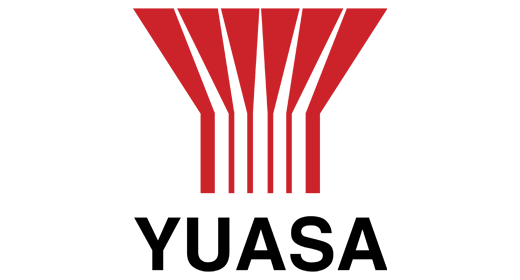Energy Efficiency in UPS: How to Reduce Your Carbon Footprint
Welcome to our illuminating journey through the world of Uninterruptible Power Supply (UPS) systems and their role in energy efficiency, particularly within the UK. This guide is designed to inspire and empower you, offering vital insights into how you can leverage UPS systems to reduce your carbon footprint.
As discussions on reducing greenhouse gas emissions intensify across the globe, energy-efficient solutions are coming to the forefront of discourse. As responsible citizens, it's crucial for us to contribute to this critical mission. One such way is by optimising our use of UPS systems, our silent partners in energy conservation.
Throughout this article, we'll uncover the significance of UPS systems in energy conservation, analyse market trends in the UK and Europe, and delve into how UPS systems dramatically cut down CO2 emissions. Moreover, we'll shed light on the growth of sustainable practices within the UPS industry. So, fasten your seat belts as we embark on this enlightening exploration!

Understanding UPS System Efficiency
The importance of energy efficiency is inarguably profound, particularly when it comes to uninterruptible power supply (UPS) systems. As global industries continue to grapple with the inevitable reality of climate change and finite resources, it's high time to delve into the significance of UPS system efficiency and its potential impact on our environment and economies.
Role of UPS Systems in Energy Conservation
UPS systems have long served as a lifeline for a myriad of industries. From healthcare to information technology, these dependable units keep critical operations running seamlessly, even amidst power catastrophes. But their crucial role extends beyond providing reliable power backup – UPS systems also wield considerable power in energy conservation.
In traditional setups, there is often a fallacy that being operational consistently equates to being efficient. However, it's essential to distinguish between a UPS system that works and one that works efficiently. An efficient UPS not only fulfils its usual role of providing continuous power supply but does so by consuming less energy, thereby acting as a catalyst in energy conservation.
Here are a few key benefits of an efficient UPS system:
- Contributing to Lower Utility Bills: Efficient UPS systems use less energy, which leads to substantial savings in electricity costs.
- Reducing Carbon Footprint: By using energy diligently, efficient UPS systems help in curbing greenhouse gas emissions, thereby playing a pivotal role in climate change mitigation.
- Limiting Strain on Power Networks: Efficient UPS systems put less pressure on the wider power grid and ensure more sustainable operations.
The intriguing part? Even minor increments in UPS efficiency can translate into significant savings. Consider this: improving UPS system efficiency from 90% to 95% could save thousands annually. Simply put, every percentage point matters!
Implication of Higher Efficiency in UPS Units
Upscaling the efficiency of UPS units is not just an eco-preferable choice; it can be an economically advantageous one too. For instance, UPS devices with a 5% higher efficiency could lead to potential annual savings of £28,220. Such substantial savings might just be enough to cover the cost of other necessary investments within an organisation.
Moreover, an efficient UPS unit isn't only advantageous during operations, but over its full service life. To set this in perspective, even a 1% increase in operating efficiency can save significant energy costs over the UPS's full lifespan. These savings can dramatically improve an organisation's bottom line over time.
In essence, UPS system efficiency is much more than purely an environmental responsibility. It's a powerful tool for cost savings, operational sustainability, and long-term business resilience. We must recognise its potential and realise that when it comes to UPS efficiency, every percentage point genuinely is a golden opportunity.
UPS Market Perspectives in the UK and Europe
As we dive into the UPS (Uninterruptible Power Supply) market landscapes of the UK and Europe, we uncover emerging trends that guide the dynamism of this robust sector. Spanning two distinct geographical locations, yet tied together by common technological trends, the UK and European markets present fascinating narratives for the UPS industry. Let's delve into these intriguing market perspectives and gain a comprehensive understanding of what they mean for the UPS economy.
UK Market Trends
Moving to the United Kingdom, the UPS market here exhibits remarkable resilience and potential. The country's UPS market is projected to hit at impressive valuation over the next few years. This is not merely a random burst of growth; it's the outcome of significant market trends that reflect the UK's economic climate. Some key factors influencing the UK UPS market include:
- The ever-increasing reliance on digital solutions
- Rising demand for reliable power supply in healthcare and data sectors
- The steady growth of industrial automation
These trends don't only elucidate the current market scenario, but also throw light on future avenues for UPS technologies in the UK. The continued growth in digital solutions and healthcare sectors indicates that the demand for UPS systems will not wane any time soon.
European UPS Market Statistics
Venturing out of the UK and into the vibrant tapestry of markets across Europe, we see that the growth narrative does not falter. The European UPS market is expected to attain a staggering value of EURO 3.366 billion by 2031.
The fulcrum of this growth lies in the diverse uses of UPS systems, which truly come to the forefront when we consider the various economies of Europe. Some notable factors fuelling this growth are:
- The growth stories of emerging economies
- The expansion of data centres and renewable energy projects
- The increasing need for power stability in critical sectors
Thus, in this vast marketplace of Europe, we see the UPS industry's evolution being propelled by an amalgamation of innovation, investment, and infrastructural advancement.
As we draw back from the small details and look at the broader picture, it's evident that the UPS markets in both the UK and Europe are poised for impressive growth. The blend of technological development, economic growth, and market-focused strategies underline the irresistible trajectory of UPS markets in these regions. With such a buoyant outlook, it's no surprise that the UPS industry is set to accomplish new heights in the near future.
The Impact of UPS Systems on Reducing Carbon Footprint
In today's world, the quest for sustainability is not just an environmental concern, but a business necessity as well. Let us delve into the pivotal role UPS systems play in this pursuit. When we talk about Uninterrupted Power Supply (UPS) systems, we usually think about their primary feature - providing a continuous power supply and protecting critical hardware. But they hold a hidden card too; they carry substantial potential for reducing our carbon footprint and ushering us towards a more sustainable future.
Reducing CO2 Emissions
Switching to energy-saving UPS systems is a highly effective approach to lower CO2 emissions. These improved systems intelligently reduce unnecessary power consumption by automatically powering down when not in use, hence lessening the load on the power grid.
Considering the astounding fact that:
"Energy used by IT equipment is responsible for about 2% of global CO2 emissions, nearly the equivalent of the airline industry."
The implementation of efficient UPS systems can lead to a significant decrease in CO2 emissions and thereby reduce our carbon footprint.
Role of UPS systems in Achieving Carbon Neutrality
UPS systems, optimised for energy efficiency, play a vital role in moving us closer to carbon neutrality (net-zero carbon emissions). Utilising UPS systems that use Renewable Natural Gas (RNG), a renewable resource, can significantly decrease CO2 emissions. Furthermore, the incorporation of carbon offset processes into UPS systems provides an avenue to balance the amount of carbon released with the amount offset or sequestered.
Notably, leading organisations like UPS have exemplified commitment towards this goal with their pledge of achieving net-zero emissions by 2050. A future where we all can make significant strides towards sustainability is indeed conceivable.
Promoting Carbon-neutral Shipping
In addition to their internal operations, UPS systems have been instrumental in promoting a carbon-neutral future by paving the way for carbon-neutral shipping. A UPS system's inherent efficiency can significantly reduce energy consumption in transit, making the shipping process more sustainable.
Organisations investing in UPS systems play a double role, not only reducing their carbon footprint but also helping consumers make more environmentally friendly choices. It's this kind of investment that helps us maintain our bottom line, all the while preserving the world for future generations.
We hope this discussion has intrigued you to further explore the untapped potential of UPS systems in contributing to a healthier, carbon-neutral world. Each step we take in embracing such technologies will bring us closer to the sustainable future we are all striving for.
Sustainability Efforts in UPS Systems
We live in a world that is increasingly becoming aware of the importance of sustainable practices. As individuals, organisations, and nations alike strive towards a greener future, innovative technologies step forward to aid in this grand endeavour. One such innovation is the Uninterrupted Power Supply (UPS) system. 'Going green' is no longer a distant dream, thanks to the sustainability efforts taking shape in UPS systems. Earlier perceived as energy-intensive technology, UPS systems are now evolving into instruments of sustainable practices. Let's delve deeper into this transformation.
Renewable Energy Use
The use of renewable energy sources is playing a pivotal role in sustainable methods within UPS technology. Imagine a world where a power outage doesn't necessarily result in the use of backup generators guzzling up litres of diesel. That's the reality that UPS systems using green energy aim to achieve!
- Solar Power: Solar panels, being widely accessible and easy to install, are gradually making their way into the construct of the UPS systems. By converting sunlight into electricity, these solar-powered UPS systems provide a sustainable backup power solution that contributes to reducing the carbon footprint.
- Wind Energy: Some UPS brands are also exploring the concept of harnessing wind energy. Although in its early stages, wind energy-powered UPS systems can change the game altogether.
Without a doubt, by leveraging renewable energy, UPS systems are playing an instrumental role in the broader mission of sustainable living.
General Sustainability Goals
Sustainable practices aren't just limited to the procurement of renewable energy. They also delve into efficient energy usage, circular economy principles, and sustainable business practices.
- Energy Efficiency: Modern UPS systems are now more energy-efficient than ever. They aim to minimise idle power draw and heat generation, hence significantly reducing energy wastefulness.
- Circular Economy: UPS systems manufacturers are focusing on circular economy principles, emphasising on creating systems with longer lifespans and easier, environmentally safe disposability. It's all about reducing impact while increasing value!
- Green Business Practices: On a larger scale, companies like UPS are offering carbon-neutral shipping options and the ability to purchase carbon offsets to reduce carbon impact.
As obvious, UPS technology's sustainability efforts are impressive and continue to change the landscape of renewable and efficient energy practices. It offers us a glimpse of a future where technology and sustainability coexist without compromise. Such practical and feasible change is what pushes us closer to our goal of a sustainable and greener world. After all, every step made for sustainability is a step made for a better tomorrow. Is your organisation ready to join this endeavour?
Conclusion
As we have navigated through the importance and impact of energy efficiency in Uninterruptible Power Supply systems, it's undeniable that the role of such systems is becoming increasingly critical in our pursuit of a more sustainable and carbon-neutral future. The UK and European market trends signify how businesses are recognising this and are eager to embrace more advanced and energy-efficient power solutions.
At Secure Power, we are at the forefront of these power supply innovations, and we share the commitment to environmental sustainability. From our versatile range of UPS products to our comprehensive maintenance services, we provide power solutions that not only ensure business continuity but also promote energy conservation and carbon neutrality.
As more and more industries align with environmental sustainability goals, we will continue to evolve and deliver solutions meeting the unique demands of each sector. Beside you on this journey, we offer uninterrupted power, unwavering support, and an unbroken promise of a greener future. If you are looking for an expert partner to support your goals, then Secure Power is here to power not just your business, but also your step towards a sustainable tomorrow.
Remember, every step counts when it comes to reducing our carbon footprint. With UPSs, you can make sure each of these steps is efficient, reliable, and environment-friendly.
Frequently Asked Questions
-
What is an uninterruptible power supply (UPS) system?
An uninterruptible power supply (UPS) system is a backup power source that provides emergency power to connected equipment in the event of a power outage or fluctuation. It ensures a continuous and stable power supply, preventing data loss or damage to sensitive electronic devices.
-
How do UPS systems contribute to carbon footprint in the UK?
UPS systems contribute to carbon footprint in the UK because they often rely on batteries that require regular charging. The charging process typically relies on the electrical grid, which may use non-renewable energy sources. Additionally, older UPS systems may be less energy-efficient, resulting in higher energy consumption and greenhouse gas emissions.
-
What are the ways to reduce carbon footprint in UPS systems?
To reduce carbon footprint in UPS systems, it is recommended to invest in energy-efficient UPS models that meet recognised standards. Using lithium-ion batteries instead of lead-acid batteries can also contribute to energy efficiency. Implementing proper maintenance and monitoring practices, such as regular battery testing and optimising load capacity, can further improve the energy efficiency of UPS systems.
-
Are there any government initiatives or regulations promoting energy efficiency in UPS systems?
Yes, the UK government has initiatives and regulations in place to promote energy efficiency in UPS systems. The Energy Technology List (ETL) scheme, for example, provides a list of energy-efficient products, including UPS systems, that are eligible for tax relief. The Carbon Trust Standard certification is also available for businesses that achieve significant energy savings, which can include improvements in UPS system efficiency.
-
Is it possible to achieve energy efficiency in UPS systems without compromising reliability?
Yes, it is possible to achieve energy efficiency in UPS systems without compromising reliability. Investing in high-quality UPS systems that have a proven track record of reliability and performance is crucial. Regular maintenance, including battery replacements and firmware updates, can also help ensure reliability while maximising energy efficiency.














